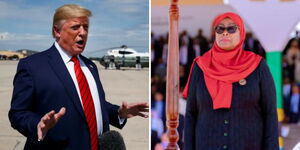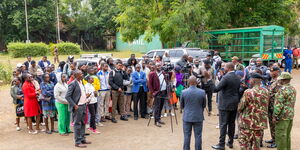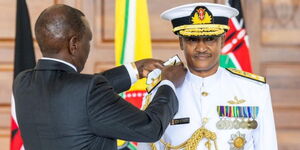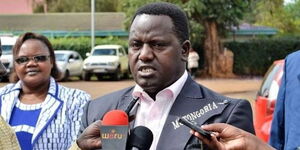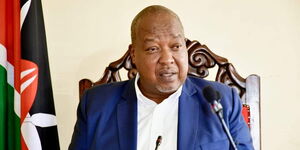The government will give direction on the long-awaited recruitment of police on Monday as the National Police Service seeks to end wrangles with the National Police Service Commission.
While speaking at the closing ceremony of the OCS’s Consultative Conference at the National Police Leadership Academy in Ngong on Thursday, Murkomen revealed that the government will issue a clear answer on the recruitment next week.
“By Monday, we should know the day we are going to have the recruitment,” Murkomen said.
President William Ruto said the recruitment exercise will take place in September; however, there has been no clear communication on what day the exercise will start.
“I have already given instructions to the Ministry of Interior that next month (September), when we recruit 10,000 police officers, 4,000 of them must come from the National Youth Service,” Ruto said on August 28, during the NYS recruits’ passing-out parade in Gilgil, Nakuru.
The mass hiring comes after the government froze the recruitment in 2022 when the Kenya Kwanza government took office.
NPSC has reported that over 10,000 officers have exited the service recently, but funding limitations have halted new hiring.
In July, Murkomen announced the recruitment plan targeting the current financial year, 2025–2026, with the exercise expected to begin within a month or two.
But there has been a huge divide between NPS and NPSC over who holds the HR responsibilities, which has also expanded to differences over the recruitment exercises. According to NPS, the responsibilities lie with the office of the Inspector General of Police, but the commission differs.
NPSC CEO, Peter Leley, formally revoked all delegated HR functions from Kanja and his deputies as of early August 2025, in a letter copied to multiple oversight agencies, citing the Commission’s constitutional mandate and prior legal rulings
NPSC proposed a shift to a fully online recruitment system to enhance transparency and combat corruption, requiring applicants to apply online, be shortlisted, and then be invited physically for assessment and training.
However, the Inspector General of Police, Douglas Kanja and several uniformed senior officers have opposed this method. They argue that the online system could facilitate behind-the-scenes manipulation.
Besides, they raised practical concerns that the system isn't ready or adequately funded; this is despite Treasury allocating Ksh2.9 billion, but the NPS requested Ksh6.9 billion.
As the fighting escalated, reports emerged that the National Security Council, chaired by President William Ruto, advised reverting to traditional recruitment, further complicating matters.
This has cleared the path for the recruitment exercise.




